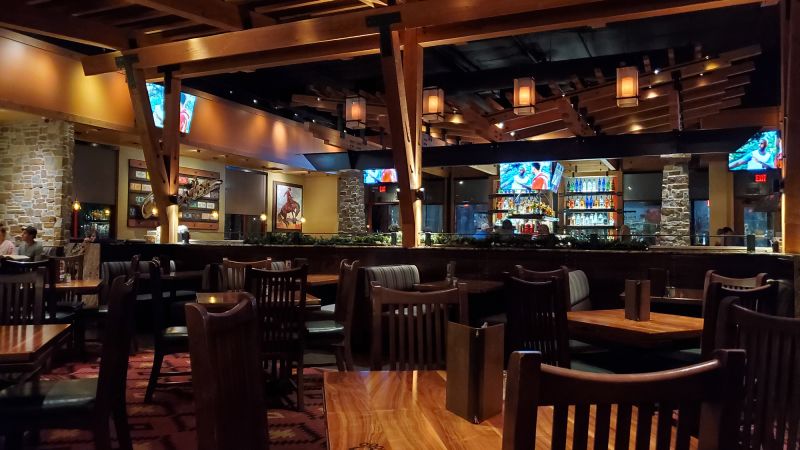US malls are undergoing a transformation as they move away from traditional chain restaurants like Ruby Tuesday and Chili’s and towards smaller, regional restaurant chains and a wider variety of global cuisines. Landlords are looking to emerging restaurant brands like Lazy Dog and Gen Korean BBQ, as well as “eatertainment” concepts like Puttshack and Topgolf, to draw customers back to malls. There is also a trend among national chains prioritizing drive-thru locations over sit-down restaurants in malls to increase profitability.
The CEO of Lazy Dog, Chris Simms, believes there is a new guard in malls, with a focus on bringing in traffic-driving concepts. Food was previously an afterthought in malls, with department stores being the main draw for shoppers, but changing consumer habits and the growth of online shopping have led to the closure of many anchor department stores and malls. As a result, landlords are investing in food and entertainment options to attract consumers and increase the amount of time they spend in the mall.
The amount of space dedicated to food in malls has increased from 5% in the 1990s to 15-20% today, making food and beverage an anchor for malls in place of department stores. Quick-service restaurants like McDonald’s and Chick-fil-A have closed many mall locations in favor of drive-thru models that are smaller, more profitable, and require less staff and maintenance. Drive-thru sales have seen a significant increase in recent years, making them a more appealing option for many chains.
New restaurant concepts like Gen Korean BBQ are gaining popularity in malls, offering customers a unique dining experience. With around 40 locations and plans to expand to at least 250, Gen Korean BBQ allows customers to order meat to their tables and cook it themselves. The growth of these new breed of restaurants is being seen in both larger regional malls and smaller strip malls, with many regional malls rebranding their spaces to attract more restaurants.
While it is still early to determine the long-term success of this shift in tenants, mall landlords and analysts are optimistic about the potential of new restaurant and entertainment options to drive foot traffic and increase consumer engagement. However, losing big-name anchor eateries can be a blow to malls, as chains like Cheesecake Factory provide a different experience that may not be replicated by newer concepts like revolving sushi bars and craft beer pubs. Ultimately, the reinvention of US malls to focus on food and entertainment represents a significant shift in retail and consumer preferences.


